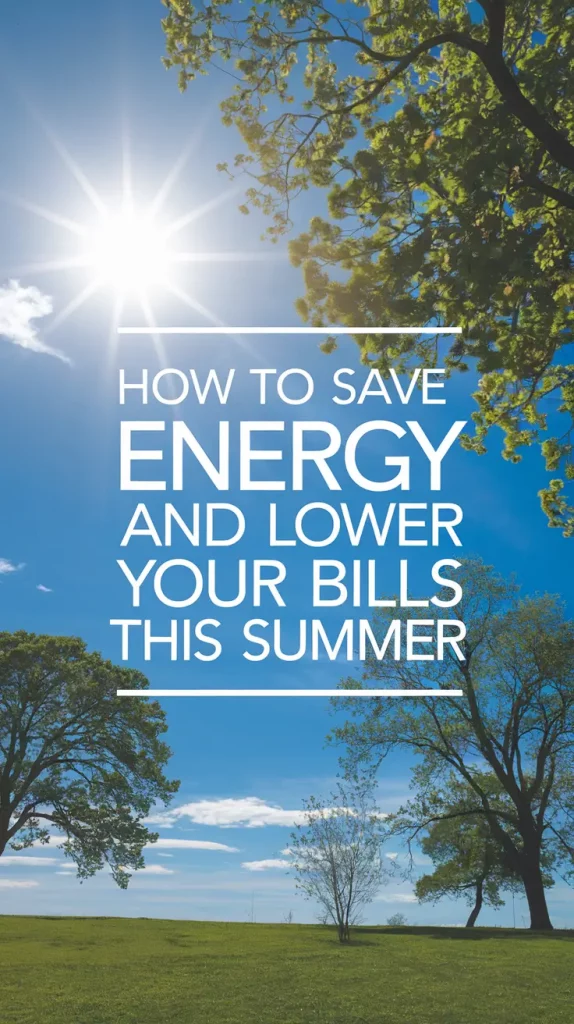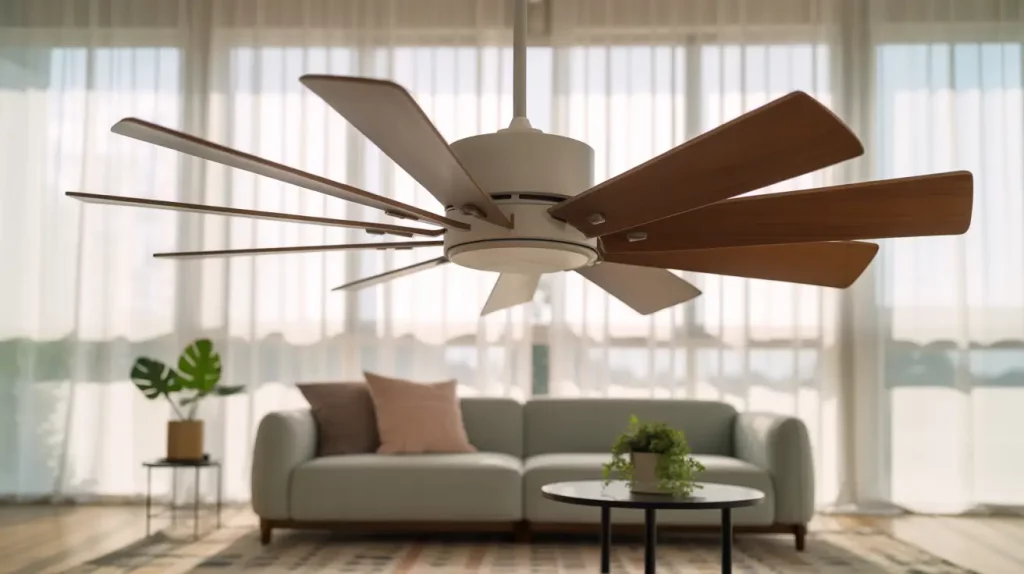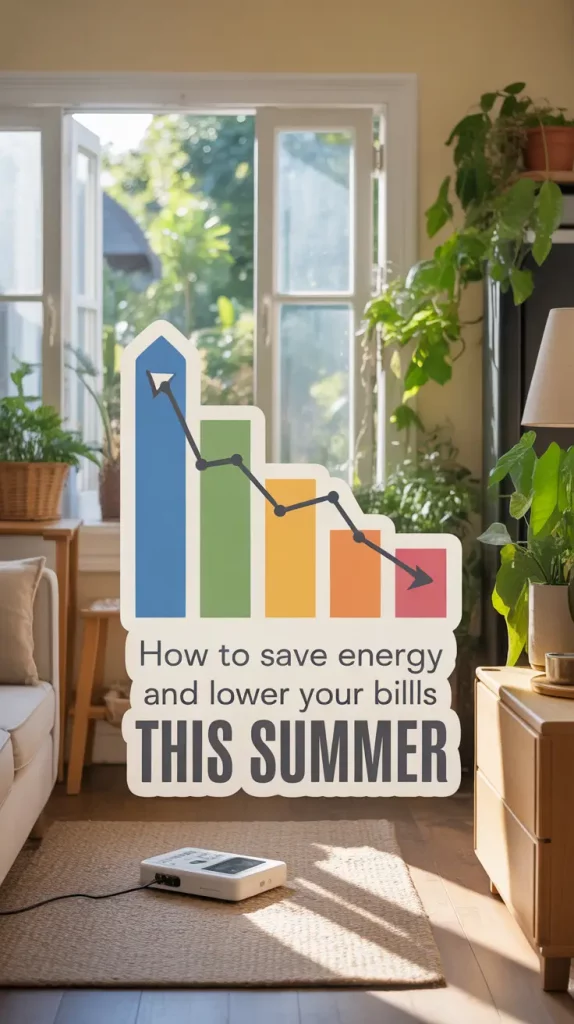How to Save Energy and Lower Your Bills This Summer

Did you know that air conditioning consumes more than 50% of your energy bill during the summer months? Now, with the temperatures and utility prices hitting the roof, summer 2025 is looking troublesome if you don’t manage your energy spending. So what if you could remain cool and save a lot of money?
This guide will help you reduce energy consumption this summer while keeping you comfortable. From smart devices to low-tech practices, we’ll provide you expert insights. Whether you own a house, live in as a renter, or work from home, there are tailored solutions for everyone regardless of lifestyle and budget.
Let’s breakdown what you’re spending on, analyze what you can modify today, and figure out which upgrades yield the fastest return.
Why Saving Energy Matters More Than Ever in 2025
Since 2023, energy prices have been consistently increasing. As the U.S. Energy Information Administration states, price of electricity rose for the first time from 2023 to 2024 by 12% showing little signs of slowing; this is a troubling trend. Consequently, a minor increase in Air conditioning usage may prove to be beneficial for your wallet.
The reduction of energy consumption assists individuals financially, but it also eases the strain on power grids. They are especially vulnerable in hotter regions, which lead to equipment failures and blackouts.
As mentioned above, the saving of power directly correlates with climate change. Cutting back on consumption lowers the carbon footprint, thus helping in reducing global warming.
Which Appliance Uses The Most Power?
In order for power saving to be effective, one must know exactly what appliances use the most. These include:
AC (Air Conditioning) Units And HVAC Systems
It is estimated that around 90% of households have AC units, which are said to consume around 2000 to 5000 watts per hour.
Fridges And Freezers
Due to high temperatures outside, old fridges work on overdrive to keep the insides cold.
Water Heating
Though one might take cold showers during the hot season, water is heated for dishwashers or washing machines.
Lighting And Electronics
While these devices might not use that much individually, the combination of all of them running at the same time multiplies the effect.
Word to the Wise: Don’t forget to unplug TVs, printers, or other electronics idle devices as chargers still draw power even when turned off.
How to Limit the Costs of Cooling Without Compromising Comfort
Here are four simple yet effective ways to reduce your cooling costs this summer—without sacrificing the comfort you count on.
Adjust the Thermostat Wisely
When at home set the thermostat at 78°F (25.5°C) and when you step out 85°F. Smart thermostats can automate schedule changes.
Use Ceiling Fans Strategically
A ceiling fan uses much less power than an AC unit and combined with a higher thermostat setting can make rooms feel up to 4°F cooler. This makes a fan much more cost-effective.
Close Curtains and Blinds During the Day
Close or cover curtains in the evening to block sunlight as this can reduce indoor temperatures by several degrees. For better results, thermal or blackout curtains can be used.
Switch to Energy-Efficient AC Units
Check the Energy Efficiency Ratio (EER) of your window AC or consider upgrading Energy Star-certified models if you’re still using window units.
New Technologies aimed at Reducing Energy Consumption
The Google Nest or ecobee learn users schedules and adjust the temperatures accordingly while some utilities even offer rebates.
Smart Plugs & Power Strips
Save on phantom loads, these can be pre-scheduled or set to respond to voice commands.
Smart Blinds
Automatically lowers or raises blinds according to time of day, temperature, or sunlight exposure.
Table: Smart Gadgets and Their Savings Potential
| Device | Estimated Annual Savings | Initial Cost |
|---|---|---|
| Smart Thermostat | $120 | $100-$250 |
| Smart Plug Strip | $40 | $25-$50 |
| Smart Blinds | $80 | $200-$500 |
Habit Changes to Save Energy
Even without fancy tech, you can cut costs with simple actions:
- Wash with cold water.
- Let the clothes air dry rather than using a dryer.
- Switch lights off before leaving a room.
- Use appliances at night when lower rates apply (confirm using time-of-use plans).
- Seal gaps in windows and doors to keep hot air out.
Among these, how many do you practice? Which can you implement from today?
Summer Expansion Preparation: Upgrades You Can Do by Yourself
With just a few DIY upgrades, you can prepare your home to stay cooler naturally and reduce your reliance on air conditioning.
Sealing and Insulation
Fix gaps in doors, windows, and attics while adding insulation. Weatherproofing is affordable yet powerful.
Update Lighting
Change old incandescent bulbs for LEDs, as they use 75% less energy and release less heat.
Reflective Window Film
This can be added to windows to potentially help in reducing heat gain by up to 70%.
Use Area Rugs on Tile or Wood Floors
Rugs assist in retaining cool air, effectively lowering the need for AC.
Policies Changes to Be Aware of in 2025
- Energy Rebates: Students with verified eligibility now have the capability to receive rebates for Energy Star appliances.
- Federal Tax Credits: Offers supplementary support for improving energy efficiency to a maximum of 30% credit.
- Utility Company Incentives: Some give free home energy audits or even programable thermostats.
Need help finding the information for each state? Visit energy.gov/savings to check.
Checklist To Save Energy With Minimal Effort
| Task | Estimated Time | Cost | Possible Savings |
| Change Thermostat Setting | 5 minutes | None | $10/Month |
| Close Windows/Doors | 1-2 hours | $15 | $180/ Year |
| Replace Five Incandescent Lightbulbs With LED | 30 minutes | $20 | $40 per year |
| Use Smart Plugs | 15 minutes | $30 | $40/Year |
| Replace Use of AC With Ceiling Fans | Real Time | none | $240/Year |
Personal Reflection: The Power of Energy Savings
Saving energy in the summer of 2025 is not only a good idea, but a necessity. Now more than ever you can cut waste make your home more efficient with climate change, the increasing cost of utilities, and technology at your fingertips.
Below are some highlighted points to remember.
- Change the settings on your thermostat and position the fans properly.
- Change to smart devices where it is possible.
- Practice low-tech habits that have big benefits.
- Make use of available rebates and tax credits.
What are you going to try first? I’m all ears for your tips on how to save money during the summer, so drop them in the comments below, and let’s work together to stay cool and save money!







